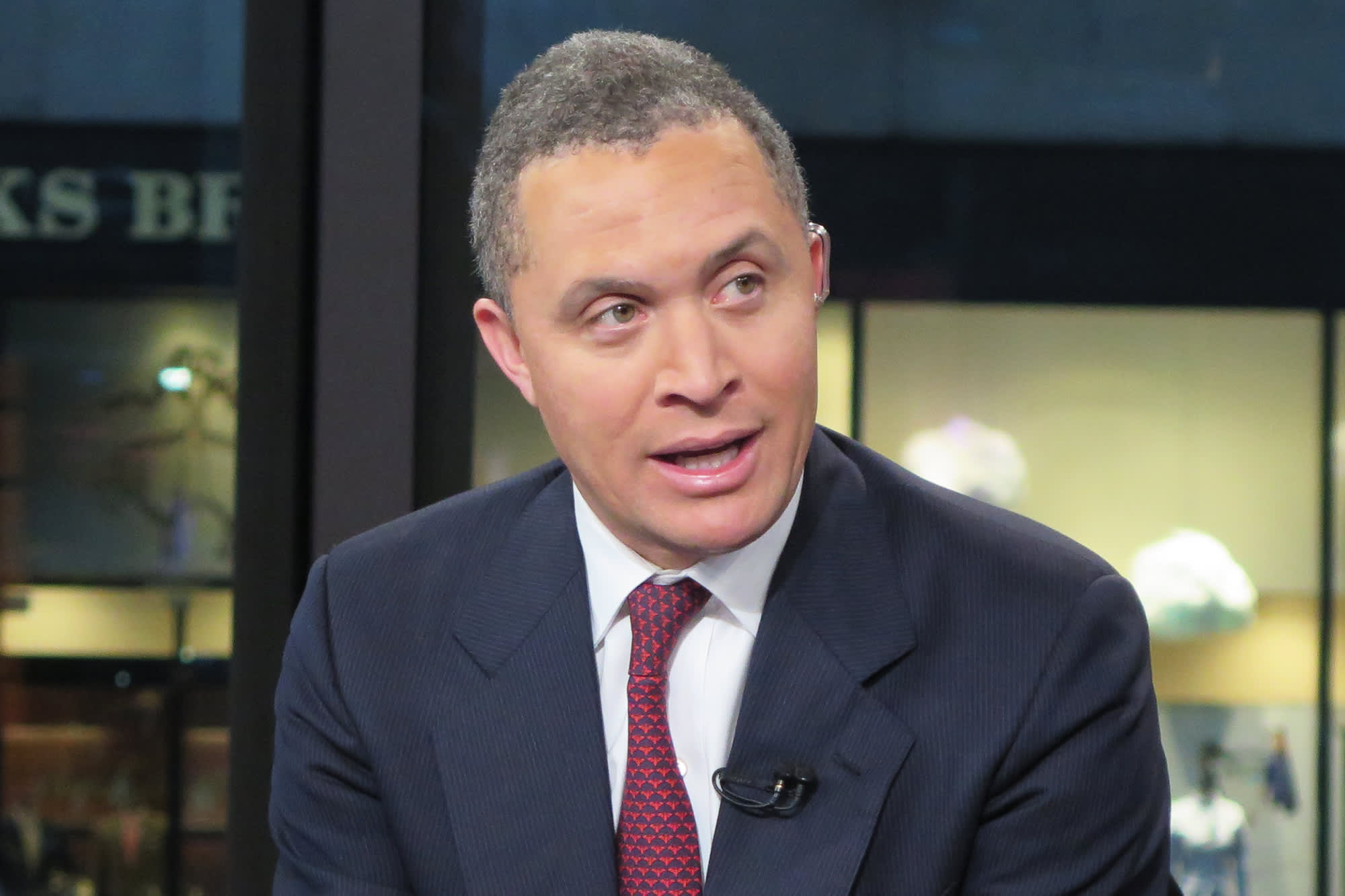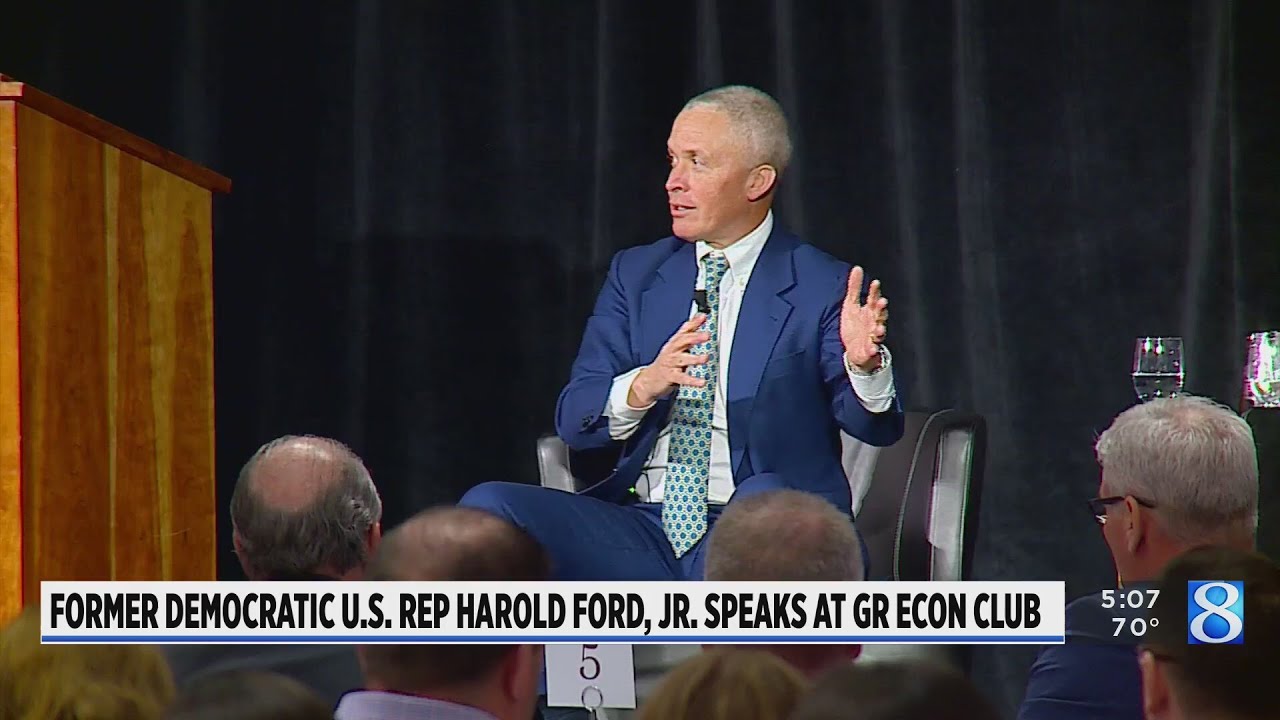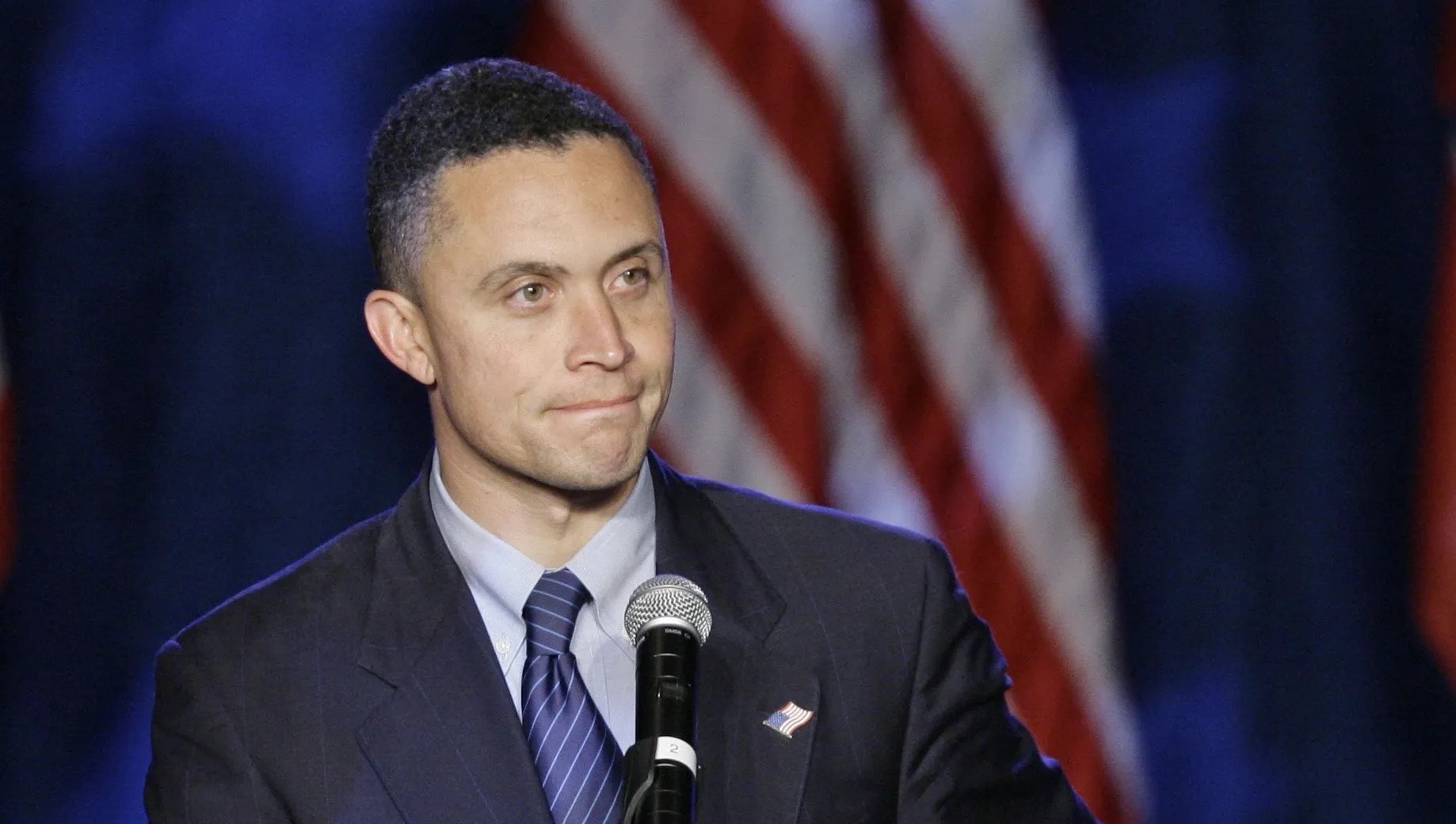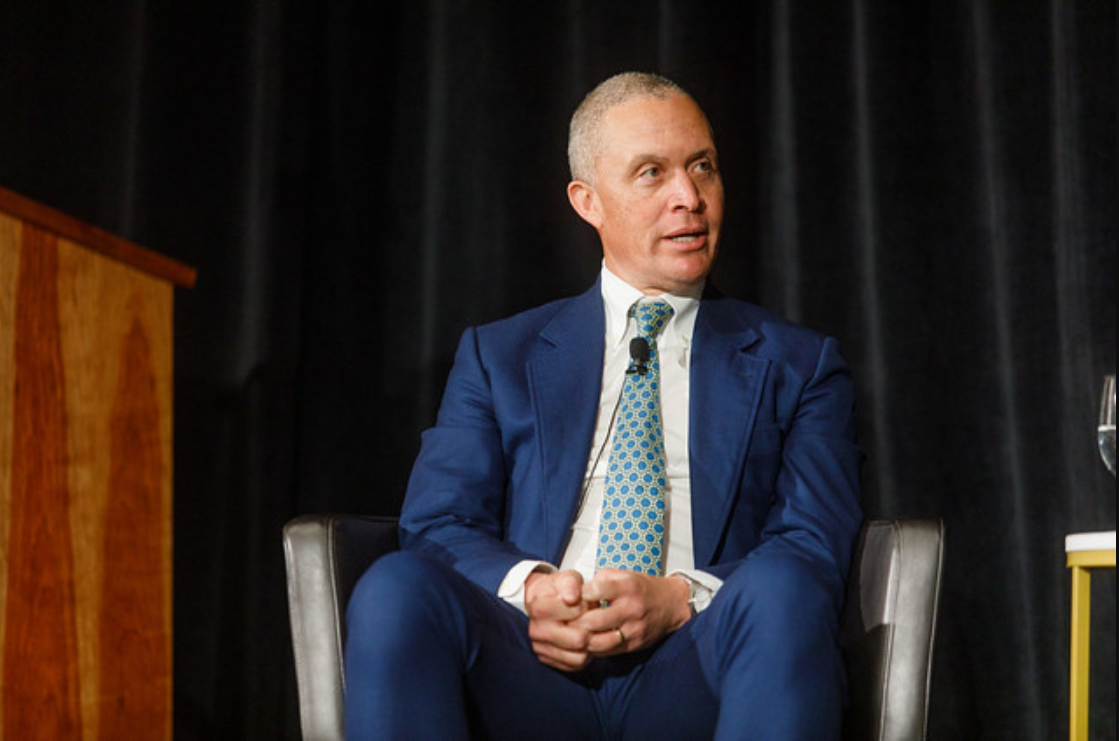Who Is Harold Ford Jr? Key Facts About His Life And Career
Harold Ford Jr. is a name that resonates in both the political and financial arenas. In this article, we explore his journey, from Congress to Wall Street and beyond.
Author:Suleman ShahReviewer:Han JuDec 23, 202424.6K Shares332.7K Views

Harold Ford Jr. is a notable figure in American politics and finance, known for his impactful career in Congress and his subsequent success in the private sector.
As the former U.S. Representative for Tennessee’s 9th district, Ford became known for his bipartisan approach and moderate political views. He is also recognized for his post-political career, where he shifted his focus to financeand political reform, making significant strides in both sectors.
This article explores Harold Ford Jr.'s life, his net worth, his political legacy, and how his career evolved after his tenure in Congress.
Quick Facts: Harold Ford Jr.
| Fact | Details |
| Full Name | Harold Eugene Ford Jr. |
| Date of Birth | May 14, 1970 |
| Place of Birth | Memphis, Tennessee |
| Education | University of Pennsylvania (B.A.), University of Michigan Law School (J.D.) |
| Political Party | Democratic |
| Years in Congress | 1997–2007 |
| Net Worth | $3 Million (as of 2024) |
| Martial Status | Married to Emily Threlkeld |
| Children | 2 (Georgia and Harold III) |
Early Life And Education
Born in Memphis, Tennessee, in 1970, Harold Ford Jr. grew up in a family deeply rooted in politics. His father, Harold Ford Sr., served as a U.S. Representative, which helped Ford Jr. develop a strong connection to the world of governance from an early age.
Ford attended the University of Pennsylvania, where he earned a degree in American History. He later pursued law at the University of Michigan Law School, graduating in 1996.
After completing his studies, Ford entered the political arena, initially working as a staff aide on the Senate Budget Committeebefore accepting a position with the U.S. Department of Commerce.
Political Career: Congressional Service And Influence
U.S. Congressman: From 1997 To 2007
Harold Ford Jr. made his mark in Washington, D.C., after being elected as the U.S. Representative for Tennessee’s 9th districtin 1997 at the age of 26. He quickly became a rising star within the Democratic Party, known for his strong positions on healthcare, foreign policy, and economic reform.
Key Committees And Legislative Achievements
Ford served on influential committees such as the House Financial Services, Budget, and Education Committees. His tenure in Congress saw him advocating for policies that supported universal healthcare, embryonic stem cell research, and drug policy reform.
Ford was also involved in fiscal policydiscussions, notably supporting the Gramm-Leach-Bliley Act, which aimed to modernize financial regulation.
Ford was a member of both the Blue Dog Coalition, a group of moderate Democrats, and the Congressional Black Caucus, which allowed him to navigate different political ideologies. His ability to bridge partisan dividesearned him a reputation as a pragmatic legislator willing to reach across the aisle.
Throughout his career, Ford Jr. demonstrated his ability to connect with diverse audiences. A prime example of this can be seen in his speech in Grand Rapids:

Former U.S. Rep. Harold Ford Jr. speaks in GR
Ford’s 2006 Senate Campaign And Loss
In 2006, Ford made a bid for the U.S. Senate, challenging Republican incumbent Bob Corker. Despite a hard-fought campaign, Ford narrowly lost the race. However, his Senate run solidified his reputation as a key figure in Tennessee politics and in national discussions about political reform.
Political Philosophy And Legacy
Ford's political philosophy can be described as one of pragmatic moderation, seeking to blend progressive ideals with practical, bipartisan solutions.
He was known for his balanced approach on issues such as defense, foreign policy, and economic reforms, often aligning with both progressive and conservative lawmakers to push through legislation.
His loss in the Senate race marked the end of his political career in Congress, but his influence continues through his advocacy work and post-political endeavors.
Post-Political Career: Transition To Finance And Teaching
Career In Finance
After leaving Congress, Ford transitioned to the private sector, working at Merrill Lynchand later Morgan Stanley. Ford held roles that involved managing senior client relationshipsand advising on complex financial matters.
His deep understanding of both public policyand corporate governanceallowed him to navigate the financial sector with a unique perspective.
Ford’s work in finance was a natural extension of his political career, as he sought to address the influence of money in politicsand the need for reform in the financial sector. He is actively involved with Issue One, a non-partisan organization dedicated to improving political transparency and campaign finance reform.
Teaching Career
Ford’s academic career began after his time in the private sector, as he taught public policyat prestigious institutions such as Vanderbilt Universityand the University of Michigan.
He also became a regular political commentator, providing insights on MSNBCand other media outlets. His dual expertise in politicsand financemade him a sought-after speaker on subjects like government accountabilityand economic reforms.
Harold Ford Jr. Net Worth
How Much Is Harold Ford Jr. Worth In 2024?
As of 2024, Harold Ford Jr. has an estimated net worth of $3 million. This wealth stems from his diverse career in politics, finance, and academia, as well as his investments and work with major financial institutions. Below is a breakdown of Ford's financial success:
| Asset Type | Value Estimate |
| Political Career Income | $1.5 million |
| Financial Sector Earnings | $800,000 |
| Real Estate Holdings | $400,000 |
| Investments and Other Income | $300,000 |
Ford’s financial success is a reflection of his varied career, which has spanned politics, business, and education.
Personal Life And Family
Harold Ford Jr. is married to Emily Threlkeld, a former marketing professional, and the couple has two children, Georgiaand Harold III. Ford's family is an integral part of his life, and he often speaks about the influence of his parents on his career.
His father, Harold Ford Sr., was a well-respected Congressman who served Tennessee for 22 years, and Ford Jr. has cited his father’s work as a model for his own approach to public service.
In his personal life, Ford enjoys a low-key lifestyle, preferring to keep his family life private while remaining active in the public sphere. His experiences as a father have deepened his commitment to policies that benefit families, such as universal healthcareand education reform.
Campaign Finance Reform And Political Advocacy
Ford’s Commitment To Political Reform
A significant part of Harold Ford Jr.’s post-political life has been dedicated to campaign finance reform. Through his work with Issue One, Ford has been a vocal advocate for reducing the influence of moneyin politics and pushing for greater political transparency.
He believes that dark moneyand special interest groupsundermine the democratic process and should be subject to stricter regulation.
Ford's advocacy for reform also extends to the broader issue of government accountability. He has called for increased bi-partisan cooperationto address the structural issues within American politics, such as voter disenfranchisementand the increasing role of corporate influence in the electoral process.
Frequently Asked Questions (FAQs)
What Were Harold Ford Jr.'s Main Political Stances During His Time In Congress?
Ford was a strong advocate for universal healthcare, embryonic stem cell research, and drug policy reform. He also supported fiscal policiesthat balanced economic growthwith fiscal responsibility.
How Did Harold Ford Jr. Influence The Senate Race In 2006?
Although he lost the race to Bob Corker, Ford’s campaign brought national attention to Tennessee’s political dynamics. His moderate stanceand bipartisan approachset him apart in a contentious race.
What Is Harold Ford Jr.'s Stance On Campaign Finance Reform?
Ford is a vocal advocate for reducing the influence of moneyin politics, working through Issue Oneto push for greater transparencyin campaign donations.
What Is Harold Ford Jr. Doing Now?
Ford is active in teaching, political commentary, and advocacy work, particularly focused on political reformand campaign finance transparency. He also maintains a presence in the financial sectorthrough his work with major institutions.
How Much Is Harold Ford Jr. Worth In 2024?
Ford’s estimated net worth is $3 million, earned through his career in politics, finance, and academia.
Conclusion
Harold Ford Jr.’s career spans multiple fields, from politics and finance to academia and advocacy. His bipartisan approach to politics and dedication to campaign finance reform have left a lasting impact on both the political and financial landscapes.
While his net worth reflects his successful career, his legacy is perhaps most evident in his tireless work toward creating a more transparent and accountable political system.
You Might Like: The Story Of Jake From State Farm - Khakis, Humor, And Heart
Jump to
Quick Facts: Harold Ford Jr.
Early Life And Education
Political Career: Congressional Service And Influence
Ford’s 2006 Senate Campaign And Loss
Post-Political Career: Transition To Finance And Teaching
Harold Ford Jr. Net Worth
Personal Life And Family
Campaign Finance Reform And Political Advocacy
Frequently Asked Questions (FAQs)
Conclusion

Suleman Shah
Author
Suleman Shah is a researcher and freelance writer. As a researcher, he has worked with MNS University of Agriculture, Multan (Pakistan) and Texas A & M University (USA). He regularly writes science articles and blogs for science news website immersse.com and open access publishers OA Publishing London and Scientific Times. He loves to keep himself updated on scientific developments and convert these developments into everyday language to update the readers about the developments in the scientific era. His primary research focus is Plant sciences, and he contributed to this field by publishing his research in scientific journals and presenting his work at many Conferences.
Shah graduated from the University of Agriculture Faisalabad (Pakistan) and started his professional carrier with Jaffer Agro Services and later with the Agriculture Department of the Government of Pakistan. His research interest compelled and attracted him to proceed with his carrier in Plant sciences research. So, he started his Ph.D. in Soil Science at MNS University of Agriculture Multan (Pakistan). Later, he started working as a visiting scholar with Texas A&M University (USA).
Shah’s experience with big Open Excess publishers like Springers, Frontiers, MDPI, etc., testified to his belief in Open Access as a barrier-removing mechanism between researchers and the readers of their research. Shah believes that Open Access is revolutionizing the publication process and benefitting research in all fields.

Han Ju
Reviewer
Hello! I'm Han Ju, the heart behind World Wide Journals. My life is a unique tapestry woven from the threads of news, spirituality, and science, enriched by melodies from my guitar. Raised amidst tales of the ancient and the arcane, I developed a keen eye for the stories that truly matter. Through my work, I seek to bridge the seen with the unseen, marrying the rigor of science with the depth of spirituality.
Each article at World Wide Journals is a piece of this ongoing quest, blending analysis with personal reflection. Whether exploring quantum frontiers or strumming chords under the stars, my aim is to inspire and provoke thought, inviting you into a world where every discovery is a note in the grand symphony of existence.
Welcome aboard this journey of insight and exploration, where curiosity leads and music guides.
Latest Articles
Popular Articles


